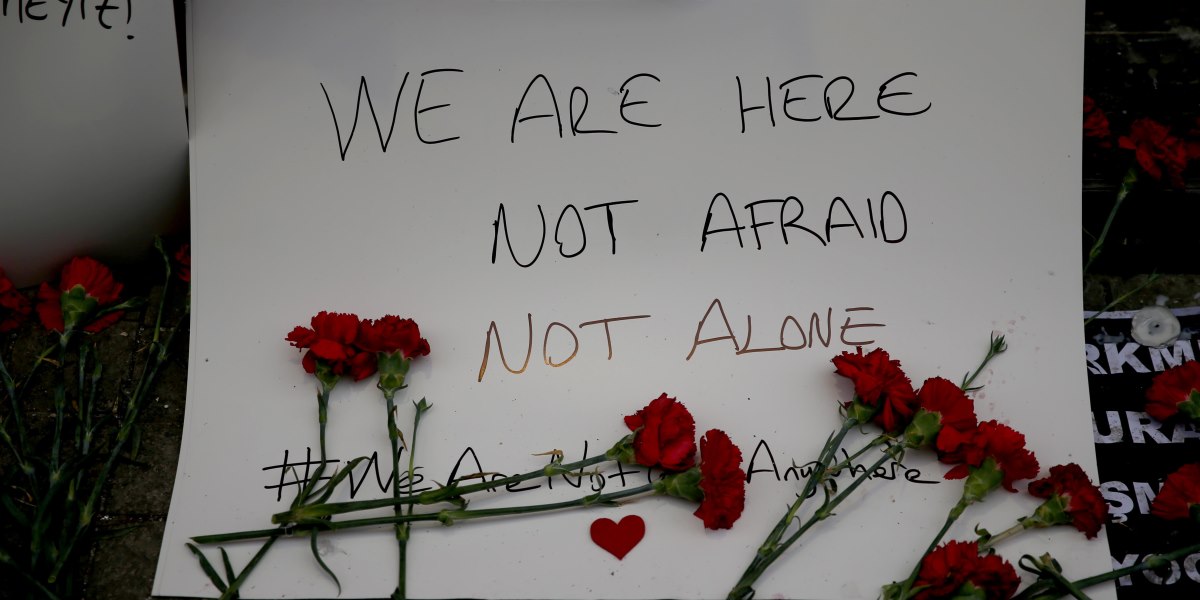
Istanbul and Ankara Terror Attacks
In the past month there have been two suicide bombings in Ankara conducted by the PKK splinter group TAK and one in Taksim in Istanbul by DAESH. Since the global community has left Turkey alone in its fight against these terrorist organizations, Ankara is determined to continue alone if necessary
Share
Last week alone Turkey became the target of international terrorism twice. Last Sunday in the central square in Ankara, a member of the PKK offshoot Kurdistan Freedom Falcons (TAK) blew herself up in a very crowded intersection and transportation hub, killing 35 and wounding more than 120 people. According to initial reports, she was facing trial for propagating PKK propaganda and she went to Syria, where she was trained among the members of the People's Protection Units (YPG). This was the second bombing in Ankara in a month perpetrated by the same organization. On Feb. 17, the TAK had conducted another terrorist attack around the same neighborhood during a rush hour, killing 29 and wounding 61 people. Following these attacks in Ankara within a short period of time, on Saturday, this time a suicide bomber blew himself up close to Taksim Square in Istanbul, in one of the busiest shopping districts in the country. Five people were killed in the attack and dozens of people, including foreign nationals were wounded. The authorities have now formally announced that the suicide bomber was a DAESH member. With the announcement of the attacker's identity, this has become the second DAESH suicide attack in Turkey in the last two months. Its previous attack took place in Sultanahmet Square, another popular tourist destination in Istanbul. The attacker killed 13 people and wounded 14 in this terrorist attack.
This is only the record of terrorist attacks in the first three months of 2016. These attacks demonstrated a few important points for the future of the fight against terrorism in the region. First of all, it may now seem like a repetition of an old argument, but the situation in Syria is the primary reason for DAESH's increasing strength in the region. From the very beginning it was mentioned that in the absence of a comprehensive plan involving the stabilization of Syria and dealing with Bashar Assad's regime, the strategy will fail to bring an effective outcome. It has been almost 20 months since the international coalition began fighting DAESH. In terms of the territorial dimension DAESH was pushed back in Syria and Iraq. However, DAESH proved from the very beginning to be tactically flexible to turn into a more mainstream terrorist organization and target cities and civilians in different countries when it is pressured in its strongholds. Although there was some intelligence cooperation about DAESH among the countries in terrorist organization's areas of recruitment and financing, most of the focus has been to defeat DAESH like it is a regular army in frontal warfare in Syria or Iraq. The last two attacks in the last two months in Turkey demonstrated that DAESH is changing its tactic and trying to spread its impact. And although the attacks took place in Istanbul, DAESH is trying to make the attacks more international by conducting suicide bombings in tourist areas. So, in addition to Turkish citizens, the attackers aimed to kill people from different countries. This can be a signal or a threat of the increasing internationalization of DAESH targets in the future. The international coalition and cooperation among the security establishments of countries fighting against DAESH need to be more operationally pro-active and tactically flexible to stop the increasing spread of DAESH attacks.
Secondly, the part of strategy to fight against DAESH by empowering the YPG has been shown to be counterproductive. To support a terrorist organization to fight another terrorist organization was already a risky enterprise, especially when the YPG was acting like a branch of the PKK, which has been targeting the Turkish state for years. Ankara's concerns about PKK and YPG relations fell on deaf ears for months now. The U.S. State Department spokesmen in particular constantly emphasized the difference between the YPG and PKK and the U.S. administration's continued support for the YPG forces. However, the attacks in Ankara in the last two months show the membership and operational overlap between these two organizations. Reportedly, both of the suicide bombers went to Syria from Turkey and were trained and fought in YPG ranks. It became clear that PKK members started to use the Democratic Union Party (PYD)-held areas in northern Syria as a safe haven. In the meantime, the PKK started to also build coalitions with leftist terrorist organizations. Recently 10 of these organizations made an announcement about the formation of the People's United Revolution Movement, which may bring an international dimension in their actions in the future as well.
In fact, these four attacks by two terrorist groups in Turkey need to be understood as another warning for the international community to take a more comprehensive and consistent approach in the fight against terrorism in this part of the world. Effective cooperation and collaboration is necessary to contain and fight DAESH. In terms of PKK and YPG affiliates, at this point, the recognition of the threat posed by these organizations by Ankara's allies seems to be more important than the capacity or strategy.
[Daily Sabah, March 21, 2016]
Tags »
Related Articles







